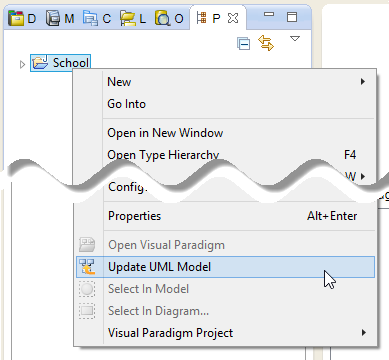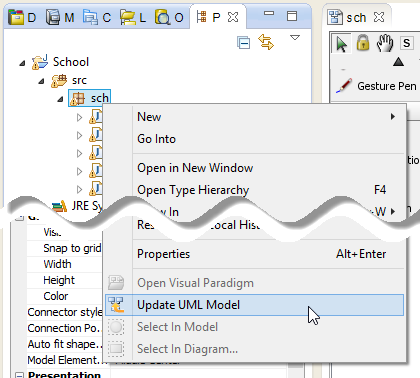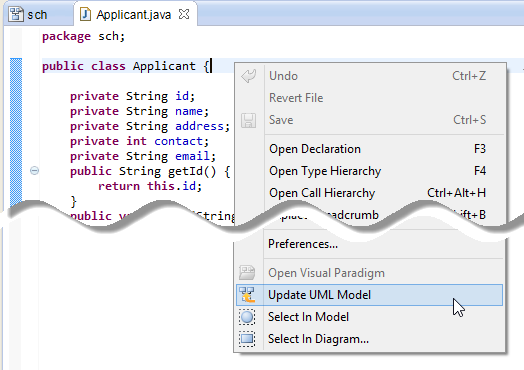How to Reverse Engineer UML Model in Eclipse?
Reverse engineering is the process to reverse engineer UML model from Java source. With reverse engineering, you can visualize your program or system with class diagram. Before reverse engineering, you must open the UML project from the Java project.
Project Based Reverse Engineering
You can produce and update UML models from all source files in a Java project. Models of the selected project, child packages and classes will be created (if the models are not already exists) or updated. To reverse engineer from an Eclipse project, right-click on the project node in Eclipse and select Update UML Model from the popup menu.
 |
| Update the whole UML model from a Java project |
Package Based Reverse Engineering
You can produce and update UML models from source files under a package. Models of the selected package, child packages and classes will be created (if the models are not already exists) or updated. To reverse engineer from a package in a Java project, right-click on the package in any tree and select Update UML Model from the popup menu.
 |
| Update UML package and its containing classes from a package folder |
Class Based Reverse Engineering
You can produce and update UML models from classes in Eclipse. Models of the selected class and child classes (inner class) will be created (if the models are not already exists) or updated. To reverse engineer code from a class in a Java project, right-click on the class file in any tree or in code editor and select Update UML Model from the popup menu.
 |
| Update UML model from source file |
Related Resources
The following resources may help you to learn more about the topic discussed in this page.
| 3. Opening a UML Project in Eclipse | Table of Contents | 5. Code Generation from UML Model in Eclipse |
